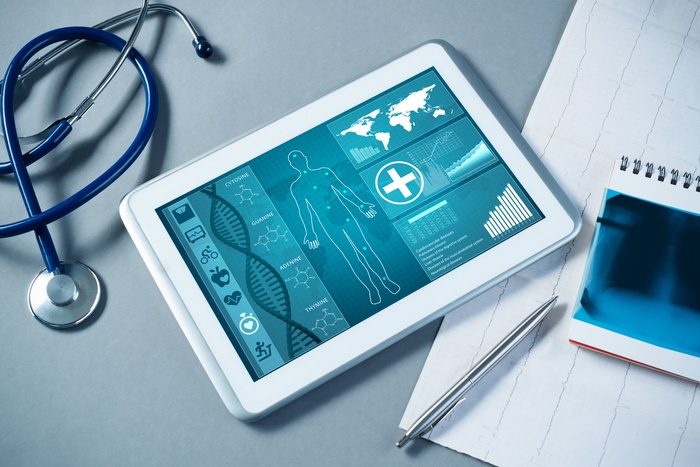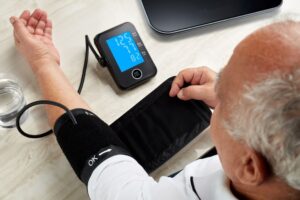Healthcare is undergoing a digital revolution that will radically change healthcare, patient outcomes, and health management. Healthtech—the innovative combination of digital technologies, artificial intelligence, and medical expertise—is transforming healthcare. Healthtech is removing barriers and creating new opportunities for patients and physicians, ranging from telemedicine platforms that connect patients across continents to wearable devices that monitor vital signs in real time. This transformation goes beyond digitalization to create new service models, improve diagnostic accuracy, and make healthcare more convenient, personalized, and efficient. Anyone interested in modern medicine should understand the components, benefits, and future impact of healthtech as we navigate this technological revolution.
What is healthtech?
Healthtech encompasses a broad range of digital technologies, software applications, and innovative solutions designed to improve healthcare, patient outcomes, and medical research. The field combines traditional medicine with advanced technologies such as artificial intelligence, machine learning, blockchain, and IoT devices. In addition to electronic health records and telemedicine platforms, healthtech also encompasses AI-powered diagnostic devices and robotic surgical equipment. Healthtech aims to improve the efficiency, accessibility, quality, affordability, and patient satisfaction of healthcare. These technologies help healthcare providers make informed decisions, reduce administrative overhead, and deliver personalized care based on patient data and needs.
Key MedTech Components
The MedTech ecosystem is transforming healthcare delivery through interconnected components. Electronic health records (EHRs) securely store and manage patient data and enable healthcare providers to share it. Telemedicine and remote monitoring enable patients to access healthcare services from home, which is valuable for the management of chronic diseases and routine consultations. Diagnostic tools, drug development, and predictive analytics use artificial intelligence and machine learning to identify health problems before they become critical. Mobile health apps and wearables continuously collect health data, empowering patients to manage their health. Complex surgeries benefit from the precision and minimally invasive nature of robotic systems. Blockchain technology enables interoperability of medical systems, secure data exchange, and patient privacy. These interconnected components together form a digital health ecosystem that promotes preventive and curative care.
How MedTech Is Transforming Healthcare
Several revolutionary mechanisms in the medtech sector are transforming healthcare delivery and addressing challenges within it. Continuous health monitoring using remote patient monitoring devices enables physicians to identify and treat problems early. AI-driven diagnostics can accurately evaluate medical images, test results, and patient complaints, often identifying patterns that physicians overlook. Precision medicine, rather than a one-size-fits-all approach, uses genetic and individual patient data to create personalized treatment plans. Digital therapies offer evidence-based software solutions for mental health, chronic diseases, and rehabilitation. Cloud-based technology enables direct communication between care teams for complex cases. Automated administrative processes free up healthcare providers to focus on patient care. Technology makes healthcare systems more efficient, cost-effective, and patient-friendly.
Benefits of Medical Technology
Health technology has improved healthcare and patient care in countless ways. Telemedicine and mobile care solutions represent a significant advantage, as they eliminate geographic limitations and provide access to care for those underserved. AI-driven diagnostics improve disease identification and treatment planning, leading to better patient outcomes and improved survival rates. Streamlining procedures, reducing hospitalizations, and providing preventive care that addresses health problems before costly interventions are needed reduces costs. Access to health data, educational resources, and self-monitoring technologies empowers patients, improving their medication adherence and lifestyle choices. Healthcare professionals benefit from reduced administrative burdens, more efficient workflows, and comprehensive patient information for clinical decision-making. Data analytics that reveal trends in community health, disease outbreaks, and risk factors can improve population health management and resource allocation.
Challenges and Opportunities
Realizing the full potential of health technology is crucial. Healthcare institutions must comply with the Health Insurance Portability and Accountability Act (HIPAA) and protect patient data from cyberattacks. Interoperability challenges between healthcare systems and technologies can create data silos and hinder the exchange of patient data. The digital divide impacts technology access and literacy, particularly among older adults and low-income individuals, who may struggle to implement modern medical technologies. As emerging technologies rapidly outpace regulations, developers and healthcare providers face compliance challenges. However, these challenges also present opportunities for innovation and development. Cybersecurity and privacy technologies are receiving increasing funding to address security issues and enable secure data exchange. Standardization and open-source initiatives are improving interoperability within healthcare systems. Education and user-friendly interfaces enable diverse populations to access medical technologies across the digital divide.
Future Trends in Healthcare Technology
Further developments in medical technology will transform healthcare delivery and the patient experience. More advanced machine learning algorithms will predict health outcomes and provide personalized treatments. Immersive virtual reality and augmented reality experiences will improve medical education, surgical planning, and patient care. IoT devices will monitor patients’ vital signs, medication adherence, and environmental factors, creating a complete health monitoring ecosystem. More affordable and accessible genomic medicine will enable widespread genetic testing and personalized treatments based on genomic profiles. Blockchain technology enables secure, interoperable health data networks, giving people complete control over their medical data and streamlining care coordination. The applications of robotic systems will extend beyond surgery to include nursing care, medication management, and rehabilitation. Together, these evolving technologies will create predictive, personalized, and preventive care systems that maintain health rather than treat disease.
The Digital Health Revolution Continues
Health technology is transforming healthcare into a more convenient, efficient, and personalized approach for individuals, caregivers, and health systems. Artificial intelligence, telemedicine, wearables, and other innovative technologies are transforming healthcare to improve outcomes, reduce costs, and increase access. As these technologies develop and mature, they will address the healthcare provider shortage, rising costs, chronic disease management, and health disparities in the global healthcare system. To ensure safe, effective, and equitable health technology solutions, technology developers, healthcare providers, governments, and patients must collaborate in this digital revolution. The future of healthcare lies in embracing technological breakthroughs while maintaining a personalized approach to deliver exceptional care.
FAQs
What is the difference between health technology and medical devices?
Medical devices are physical tools, instruments, or equipment used in medical care, while health technology encompasses digital technologies, software applications, and new healthcare solutions. Medical devices include pacemakers, MRI scanners, and blood glucose meters, while health technology encompasses mobile medical apps and telemedicine platforms.
How secure is patient data in health technology?
U.S. companies in health technology must comply with the Health Insurance Portability and Accountability Act (HIPAA), which requires data encryption, access controls, and frequent security reviews. Most reliable health technology solutions protect patient data through superior cybersecurity, secure cloud architecture, and privacy by design. Users should always verify security credentials before using any application.
Does health technology replace healthcare providers?
Health technology supports healthcare providers, not replaces them. Artificial intelligence can assist with diagnosis, and telemedicine enables remote consultations, but effective care requires human expertise, empathy, and clinical judgment. Health technology empowers healthcare providers and improves patient care.
What are the costs of implementing health technology?
Implementation costs vary depending on the technology, the size of the organization, and the complexity of the integration. While electronic health records and robotic surgical equipment require significant initial investments, many medtech solutions can save money in the long run by increasing efficiency, reducing errors, and improving patient outcomes.
How can patients verify the reliability of medtech?
Patients should seek FDA-approved or authorized medtech solutions from reputable companies with transparent privacy policies and recommended by healthcare professionals. Patients can make informed decisions about medtech implementation by reading user reviews, evaluating clinical evidence, and consulting healthcare professionals.




